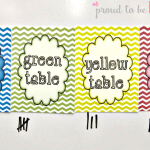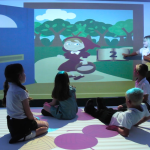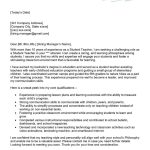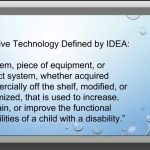Unlocking Success: Powerful Classroom Management Ideas For Preschool – Enhance Learning Today!
Classroom Management Ideas for Preschool
Introduction
Welcome, Smart People! In this article, we will explore effective classroom management ideas for preschool. As edu enthusiasts, we understand the importance of creating a structured and engaging environment for young learners. By implementing these strategies, teachers can ensure a productive and enjoyable learning experience for their students. Let’s dive in and discover how to effectively manage a preschool classroom!
What is Classroom Management?
🔍 Classroom management refers to the techniques and strategies employed by teachers to create a positive and organized learning environment. It involves establishing rules, routines, and expectations, as well as managing student behavior and facilitating effective instruction.
1 Picture Gallery: Unlocking Success: Powerful Classroom Management Ideas For Preschool – Enhance Learning Today!
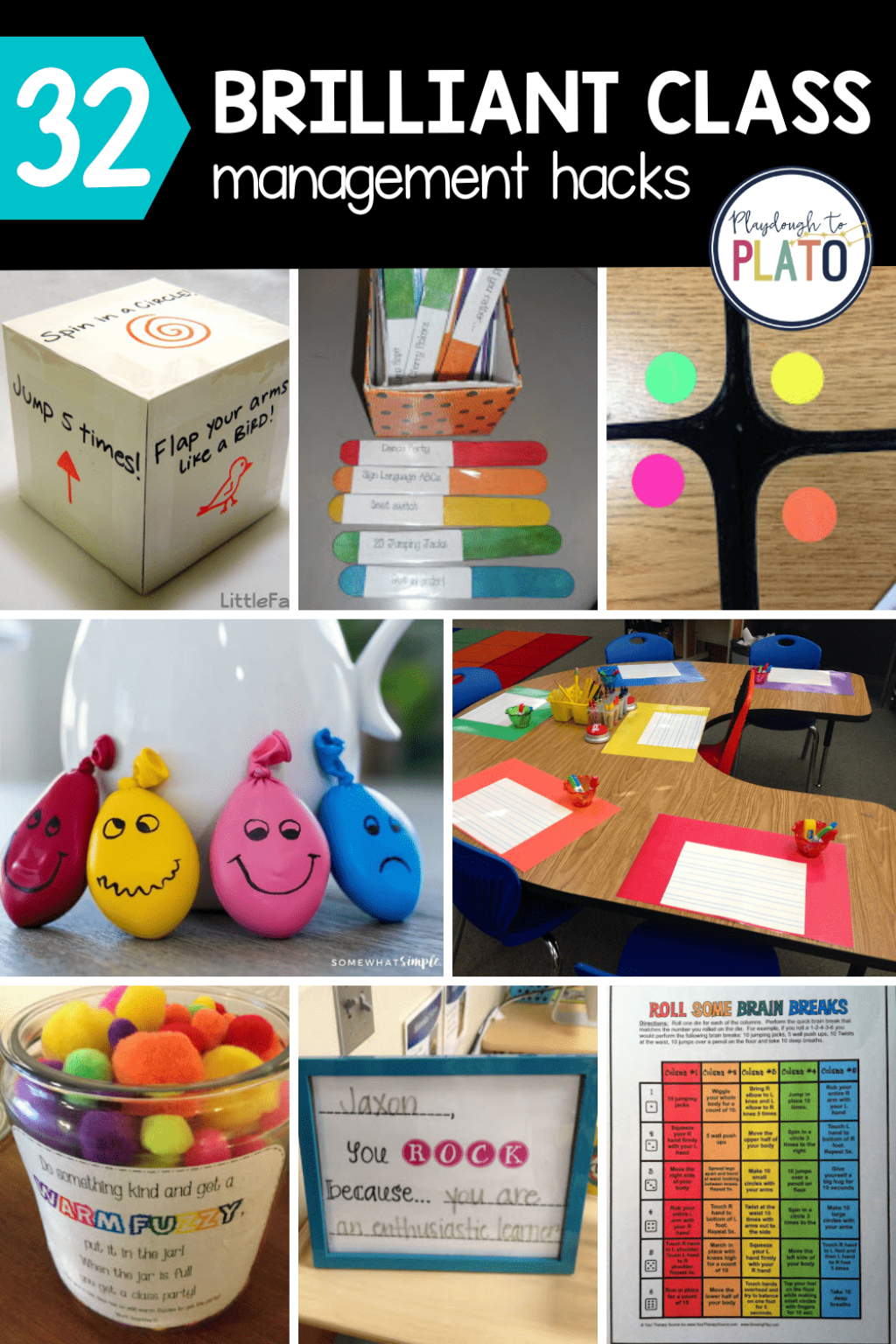
Why is Classroom Management Important in Preschool?
🔍 Effective classroom management in preschool is crucial for several reasons:
1. Promotes Learning: A well-managed classroom allows for effective instruction and promotes active student engagement.

Image Source: playdoughtoplato.com
2. Establishes Structure: Young children thrive in structured environments, as it helps them feel secure and understand what is expected of them.
3. Fosters Positive Relationships: By setting clear boundaries and expectations, teachers can build trust and establish positive relationships with their preschoolers.
4. Enhances Social Skills: Through effective classroom management, children learn important social skills such as cooperation, respect, and self-discipline.
5. Reduces Disruptions: Implementing management strategies can minimize disruptions, allowing for smoother transitions and more focused learning.
Who can Benefit from Classroom Management Ideas for Preschool?
🔍 Classroom management ideas for preschool are valuable for teachers, parents, and anyone involved in the education and development of young children. These strategies can be implemented in preschool classrooms, daycare centers, and even at home.
When to Implement Classroom Management Strategies?
🔍 It is essential to establish classroom management strategies from the very beginning of the school year or program. By setting clear expectations and routines from the start, teachers can create a positive and structured learning environment.
Where to Implement Classroom Management Ideas for Preschool?
🔍 Classroom management ideas for preschool can be implemented in various settings, including:
1. Preschool Classrooms: These strategies are specifically designed for use in preschool classrooms.
2. Daycare Centers: Daycare providers can benefit from implementing these ideas to create a structured and engaging environment for young children.
3. Home Settings: Parents can utilize these strategies to establish routines and expectations at home, promoting a positive learning environment for their preschoolers.
Why is Classroom Management Crucial in Preschool?
🔍 Classroom management is crucial in preschool for several reasons:
1. Developmental Stage: Preschoolers are at a crucial stage of development, and effective management strategies can support their social, emotional, and cognitive growth.
2. Laying Foundation: Preschool lays the foundation for a child’s future academic success. By implementing effective management, teachers can create a solid base for their students.
3. Behavioral Expectations: Preschool is often a child’s first experience in a structured learning environment. Clear behavioral expectations ensure a smooth transition to formal schooling.
4. Safety: Classroom management ensures the safety and wellbeing of preschoolers by establishing rules and procedures.
How to Implement Classroom Management Ideas for Preschool?
🔍 Here are some practical tips for implementing classroom management ideas in a preschool setting:
1. Establish Clear Rules and Expectations
🔍 Clearly communicate rules and expectations to preschoolers, using simple language and visual cues. Reinforce these regularly and provide positive reinforcement for following them.
2. Create a Structured Routine
🔍 Establish a predictable daily routine that includes transitions, learning activities, and playtime. Visual schedules and timers can help preschoolers understand and follow the routine.
3. Use Positive Reinforcement
🔍 Celebrate and acknowledge good behavior through praise, stickers, or small rewards. Positive reinforcement encourages positive behavior and motivates preschoolers.
4. Implement Behavior Management Techniques
🔍 Utilize techniques such as redirection, modeling, and logical consequences to address challenging behaviors. Focus on teaching and reinforcing appropriate behavior.
5. Foster a Supportive Classroom Environment
🔍 Create an environment that promotes cooperation, respect, and inclusivity. Encourage teamwork, empathy, and problem-solving skills through group activities and discussions.
6. Provide Engaging Learning Materials
🔍 Offer a variety of age-appropriate, hands-on learning materials that cater to different learning styles. Rotate materials regularly to maintain interest and curiosity.
7. Communicate and Collaborate with Parents
🔍 Establish open lines of communication with parents, sharing information about their child’s progress and behavior. Encourage parental involvement and seek their input on classroom management strategies.
Advantages and Disadvantages of Classroom Management Ideas for Preschool
Advantages:
1. Promotes Learning: Effective classroom management enhances the learning experience for preschoolers, allowing them to thrive academically and socially.
2. Builds Self-Discipline: Classroom management teaches preschoolers self-discipline and self-control, essential skills for future success.
3. Establishes Order: A well-managed classroom creates a sense of order and structure, providing a safe and positive environment for preschoolers.
Disadvantages:
1. Time-Consuming: Implementing and maintaining effective classroom management strategies requires time and effort from teachers.
2. Individual Differences: What works for one preschooler may not work for another. Teachers must tailor their strategies to meet the diverse needs of their students.
3. Resistance to Change: Some preschoolers may resist the rules and routines initially, requiring patience and consistency from teachers.
FAQs about Classroom Management Ideas for Preschool
Q1: How can I handle disruptive behavior in a preschool classroom?
A1: Address disruptive behavior promptly by redirecting the child’s attention, providing clear expectations, and reinforcing positive behavior.
Q2: What should I do if a child refuses to follow the rules?
A2: Communicate consequences calmly and consistently. Use logical consequences, such as temporarily removing privileges, to teach the child about cause and effect.
Q3: Are rewards effective in managing preschoolers’ behavior?
A3: Rewards can be effective if used sparingly and paired with verbal praise. However, the focus should be on intrinsic motivation and teaching appropriate behavior.
Q4: How can I involve parents in classroom management?
A4: Regularly communicate with parents, share expectations and strategies, and seek their input. Encourage parental involvement in classroom activities and events.
Q5: How can I create an inclusive classroom environment for diverse learners?
A5: Foster inclusivity by celebrating diversity, promoting empathy and understanding, and providing appropriate accommodations and adaptations for each child’s needs.
Conclusion
In conclusion, effective classroom management is vital in preschool education. By implementing strategies such as establishing clear rules and expectations, creating a structured routine, and fostering a supportive learning environment, teachers can create a positive and engaging experience for preschoolers. Collaborating with parents and utilizing behavior management techniques further enhances the effectiveness of classroom management. Remember, a well-managed classroom sets the stage for a successful educational journey for our little learners.
Final Remarks
🔍 It is important to note that classroom management is an ongoing process that requires flexibility and adaptation. What works for one group of preschoolers may not work for another. As educators, we must continuously evaluate and refine our strategies to meet the unique needs of our students. Classroom management is not about control, but rather about creating an environment that fosters growth, learning, and joy. Let us strive to create nurturing and inspiring classrooms that lay the foundation for lifelong learning.
This post topic: Classroom
